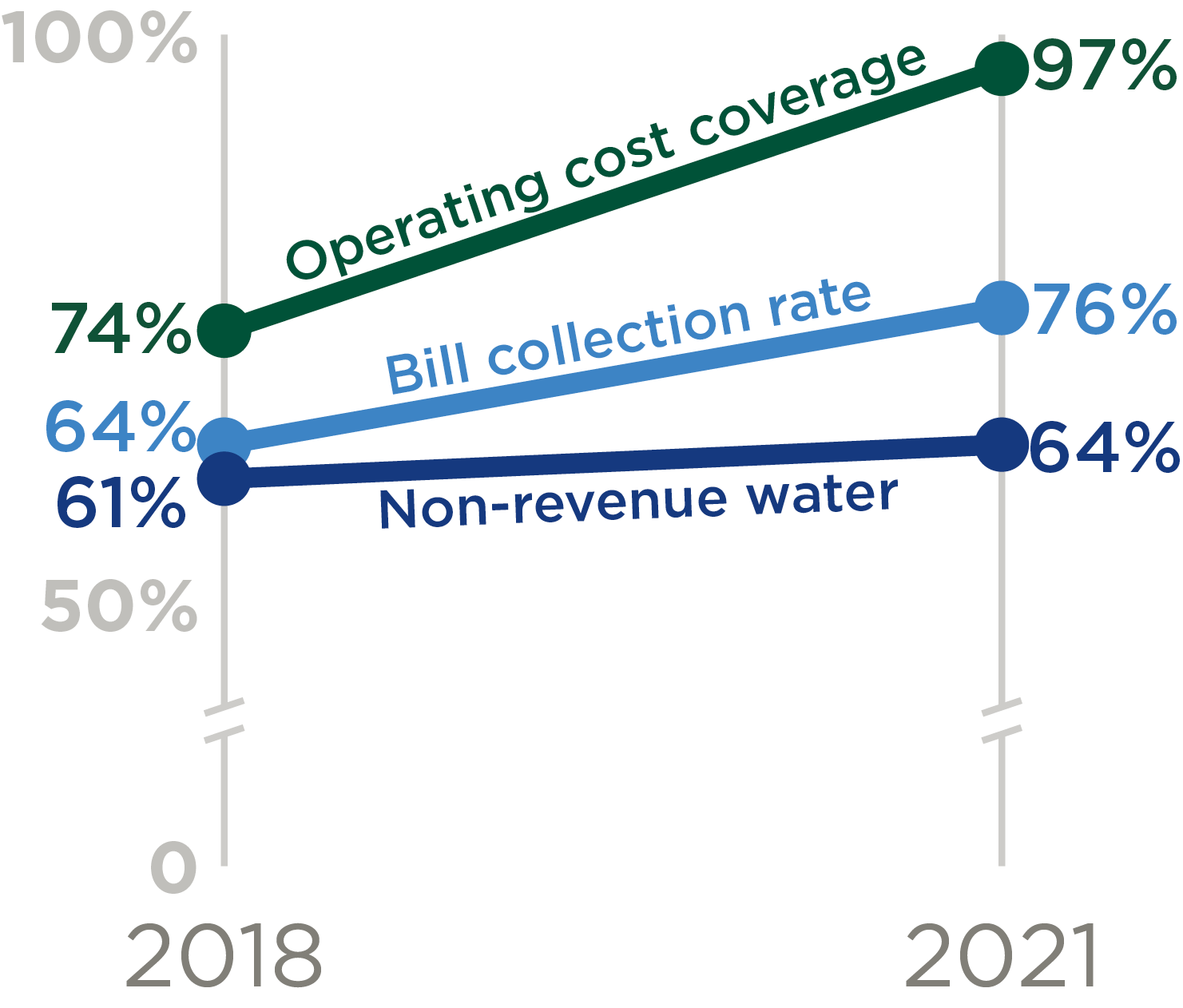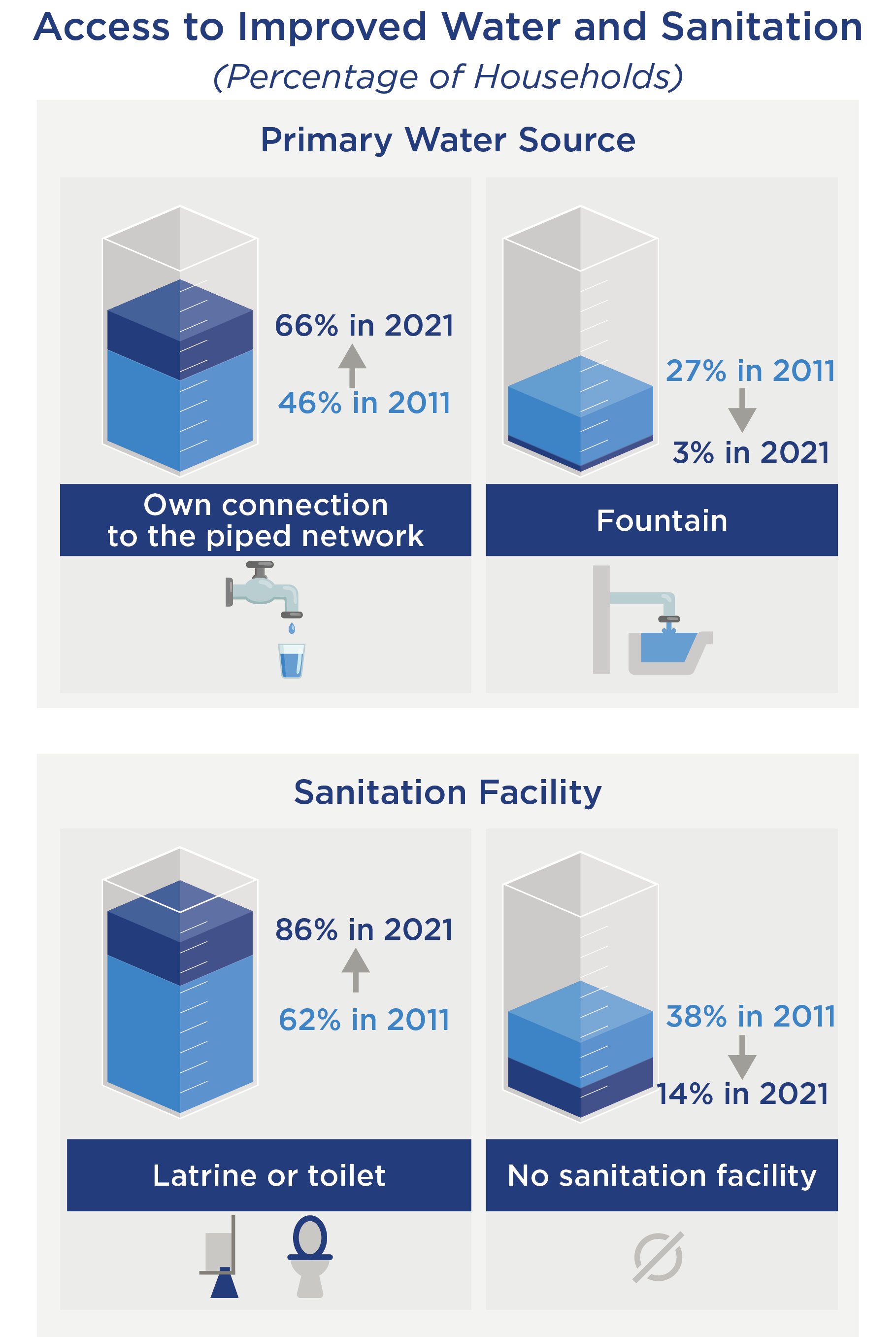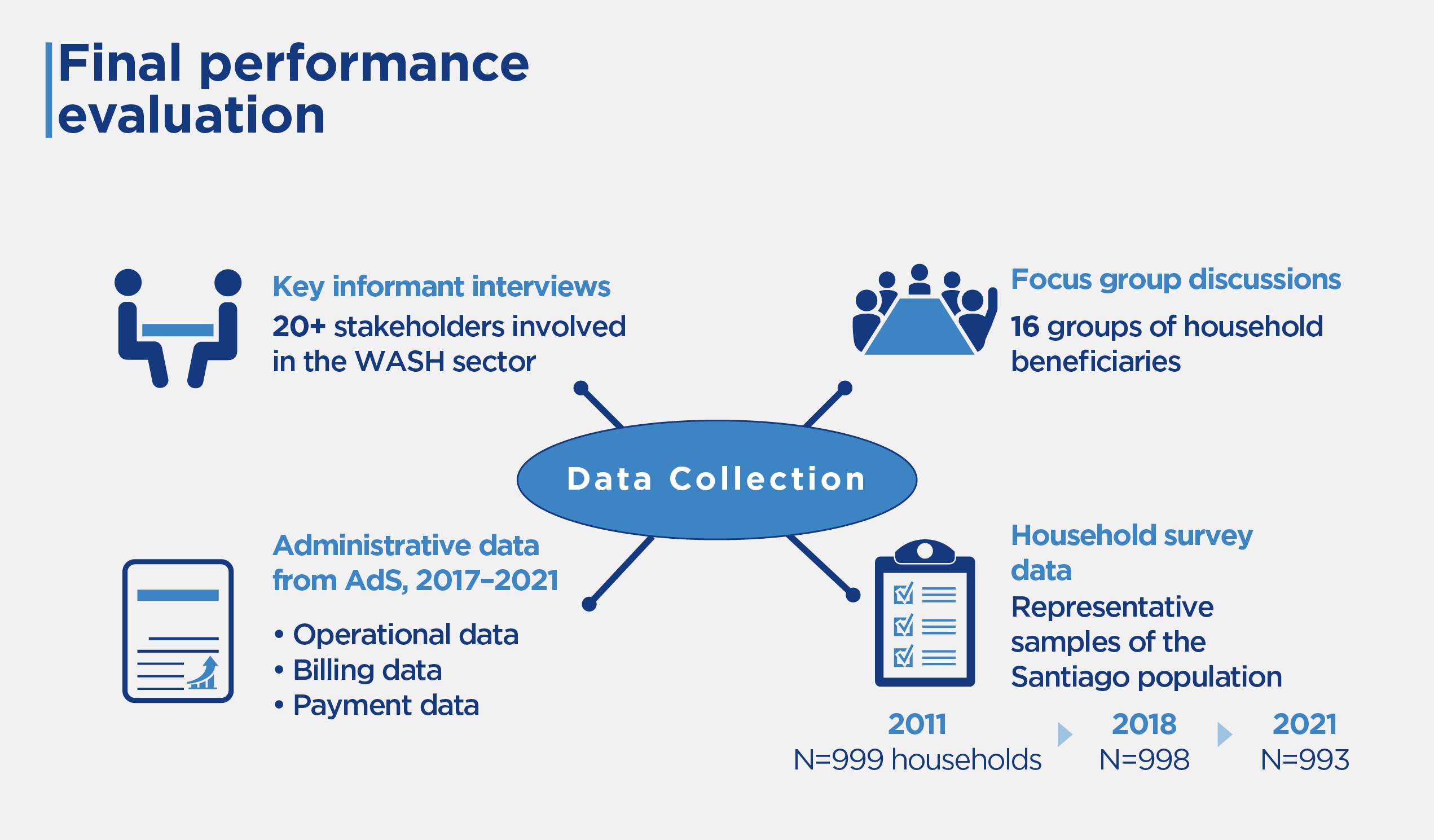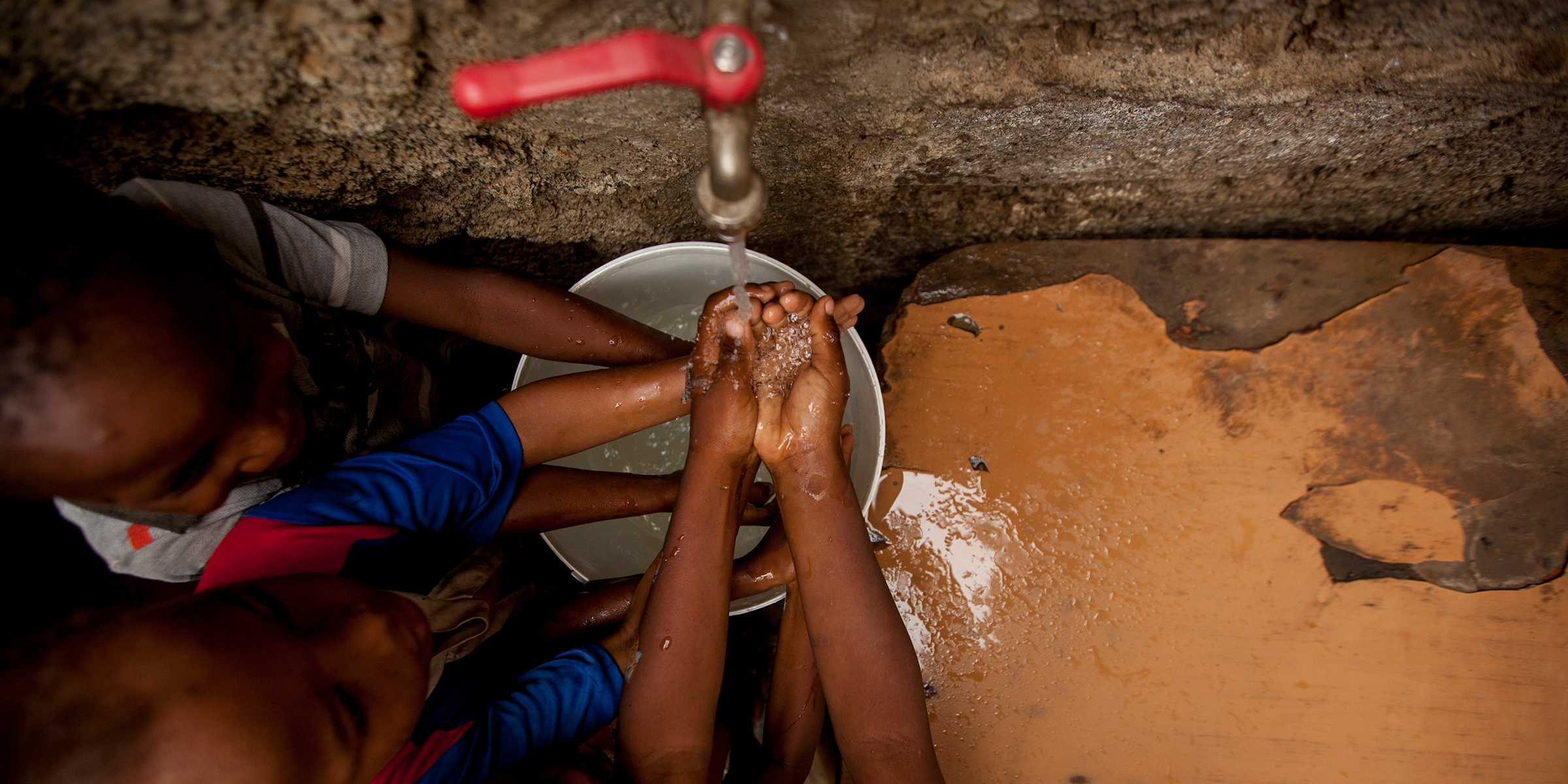Program Overview
MCC’s $66 million Cabo Verde Compact II (2012-2017) funded the $41 million Water, Sanitation, and Hygiene (WASH) Project. The project aimed to improve service delivery, increase households’ productivity through access to piped water and sanitation, increase funding for the sector, and make government spending more efficient by strengthening the institutional and regulatory environment; creating a new, financially sustainable corporatized water utility; funding infrastructure rehabilitation and expansion; and subsidizing household connections to the water and sewer networks.
Evaluator Description
MCC commissioned Mathematica to conduct an independent final performance evaluation of the Water, Sanitation, and Hygiene Project. Full report results and learning: https://mcc.icpsr.umich.edu/evaluations/index.php/catalog/212.
Download the Portuguese translated evaluation brief.Key Findings
National Policy and Institutional Reform
- The new compact-supported regulator for water quality and service delivery continues to work closely with the economic regulator to oversee water and sanitation utilities.
- The government has launched several new initiatives to reduce the cost of water for poor households.
Utility Reform
- Águas de Santiago (AdS) has matured into a capable water utility for Santiago island, increasing its customer base by 19 percent and covering all of its operating costs.
- Drought and the COVID-19 pandemic disrupted AdS service.
Infrastructure Funding
- The Environmental Fund, created by the government to finance infrastructure investments, has awarded AdS four grants, including desalination facilities to increase water supply.
- The infrastructure projects that received grant funding during the compact are still operational. The Sal wastewater treatment plant is a notable success.
Household Access to Piped Water and Sanitation
- 43 percent more households have piped water relative to before the compact and twice as many have a sewer connection.
- Access to piped water did not reduce water collection times because collecting water was fast for most households.
Evaluation Questions
This final performance evaluation was designed to answer the following questions.- 1 How did the political and economic incentives of different sector actors affect the sustainability of the WASH Project activities, and in particular the grant facility and the new utility Águas de Santiago?
- 2 Was the WASH Project as a whole effective at increasing the management efficiency and sustainability of the sector?
- 3 What has been the effect of the WASH Project on access to, quality and continuity of, and cost of water and sanitation services for households in Cabo Verde? On gender and social equality in access to and cost of water and sanitation services?
Detailed Findings
These findings build upon the interim evaluation report results published in 2020.National Policy and Institutional Reform
The National Agency for Water and Sanitation—created as part of the WASH Project—continues to lead the budgeting process for the WASH sector. It also serves as the technical regulator for water and sanitation utilities, though it has not been as proactive about monitoring water quality as was envisioned. The organization’s mandate was recently expanded to include regulation of solid waste management and it has taken on project management of donor-financed infrastructure loans.The WASH Project aimed to help AdS (the new multi-municipal water and sanitation utility on Santiago) balance financial sustainability with its mandate to provide affordable, high-quality services to all customers, especially the poor, by providing technical assistance to the economic regulator which sets tariffs for corporatized water and sanitation utilities in the country. After the compact ended, the government of Cabo Verde established a national system for identifying the poor and a social tariff that provides poor households with 5 m3 of piped water for free each month. However, the tariff schedule for non-poor customers has not been updated, and they continue to also receive 5 m3 of piped water at a subsidized price—a holdover from before the poverty registry was created. As a result, the current tariff schedule has negative consequences for AdS’s financial condition and its social mandate.
Utility Reform

Following AdS’s example on Santiago, multi-municipal corporatized utilities are being set up on three more islands: Maio, Santo Antão and São Nicolau. Overall, the WASH Project seems to have been successful at reducing the need for implicit subsidies to water and sanitation utilities in Cabo Verde, but because funds are fungible, it is not possible to determine if the government has reallocated the savings to more productive spending.
Infrastructure Funding
As part of the WASH Project, an infrastructure grant facility was established to finance capital investments for corporatized water and sanitation utilities. After the compact, the government opted not to institutionalize that particular entity, but instead designated its existing Environmental Fund—which distributes revenues from the national ecological tax—as the mechanism for financing WASH infrastructure. As an indication of the government’s prioritization of WASH infrastructure, it has committed $14 million for WASH projects between 2021-2025.The infrastructure projects that received grant funding from the WASH Project are still operational. The utility on Sal has invested its own funds to expand the grant-funded wastewater treatment facility to process the increasing volume of wastewater produced by the tourism industry and meet the growing demand for treated wastewater that can be used for irrigation on the arid island.
Access to Piped Water and Sanitation

Water consumption remained relatively low on Santiago—the average household consumed 34 liters per person per day in 2021. Poor households, who were less likely to be connected to the piped water network, consumed far less water than non-poor households—an average of 18 liters per person per day, 25 percent less than they did in 2018.
In 2021, two-thirds of Santiago households regularly collected water, including over half of those who had a piped water connection, due to limited water supply and service disruptions. Nonetheless, time spent collecting water was not a major burden for most households. The WASH Project did not lead to increased household productivity, which was part of the economic justification for the project. Although more households now have access to piped water, this did not generate major time savings since the time required to collect water was already quite low for most households, nor did it enable income-generating activities.
MCC Learning
- Strong buy-in and commitment of sector partners can contribute to the sustainability of institutional reform.
- Streamline the number of evaluation questions to produce more focused evaluation reports.
Evaluation Methods

- Interviews with over 20 stakeholders involved in the WASH sector.
- Administrative data from AdS including operational, billing, and payment information from 2017-2021.
- Household survey data from representative samples of the Santiago population in 2011 (N=999 households), 2018 (N=998), and 2021 (N=993).
- Focus group discussions with 16 groups of household beneficiaries.
2023-002-2830


